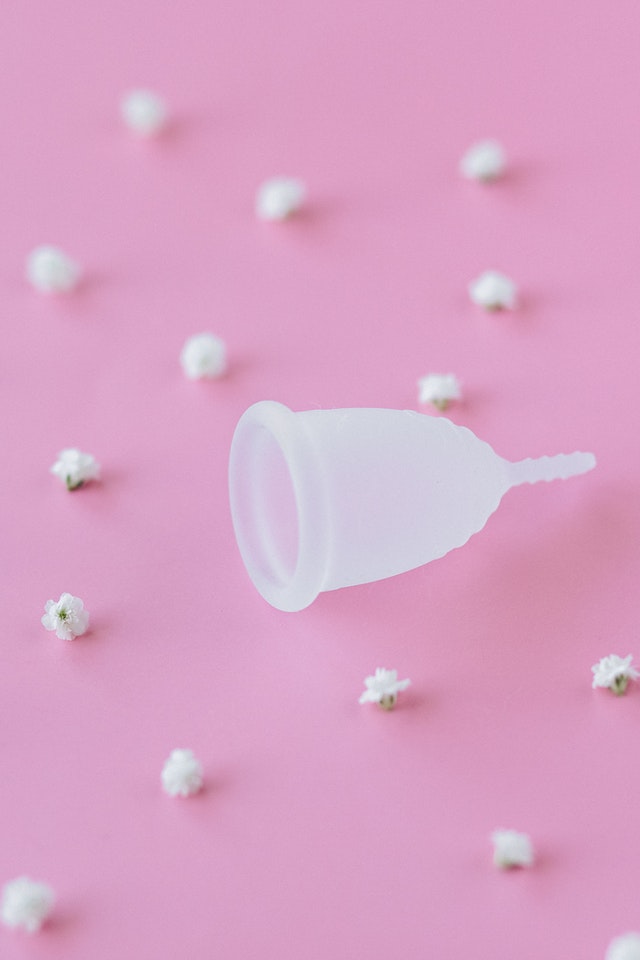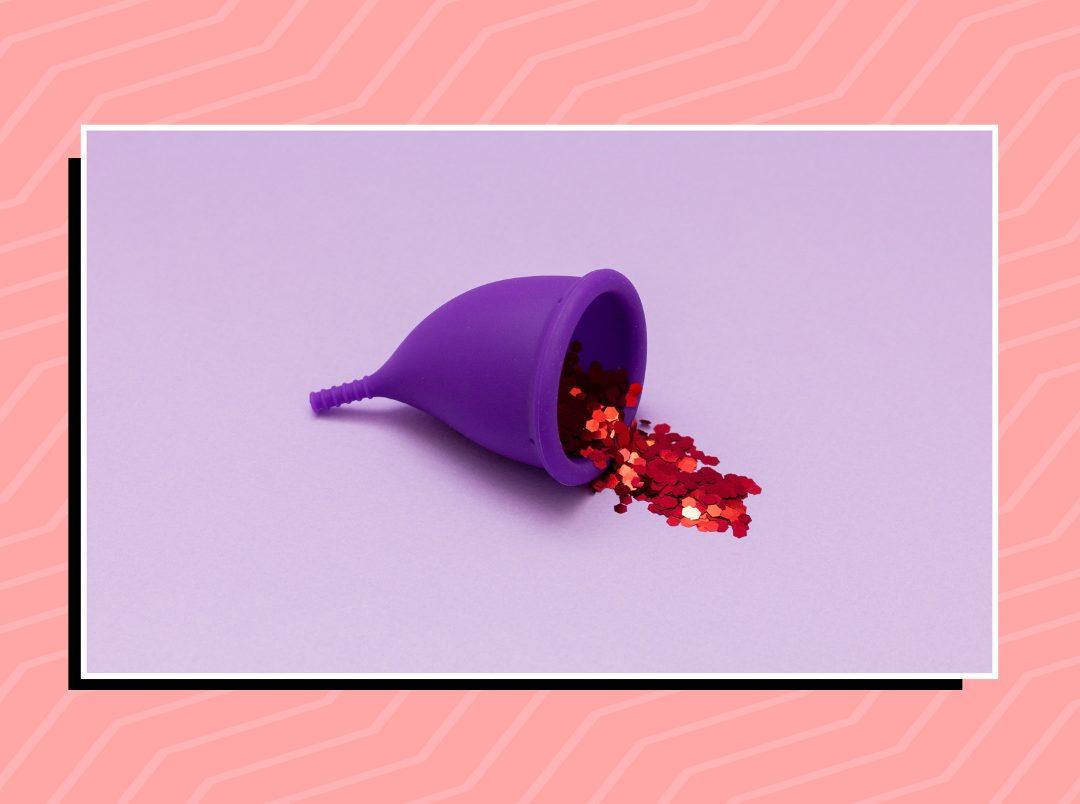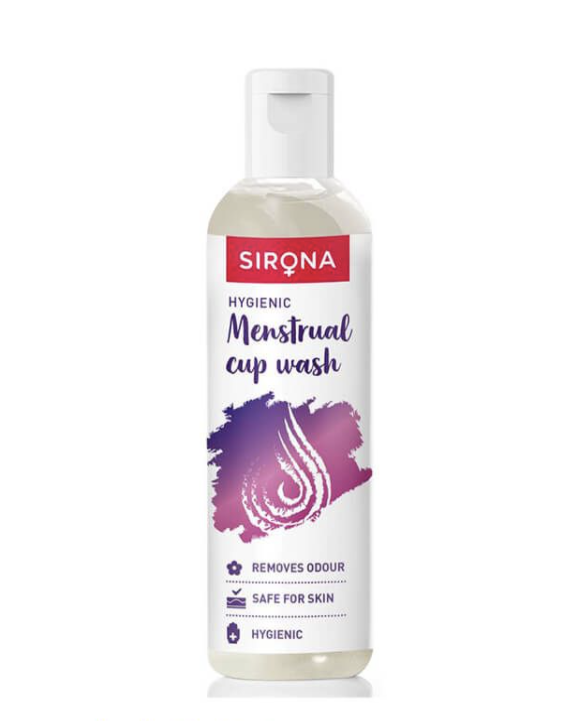Is menstrual cup your go-to period product? Great choice, boo! This reusable device has an edge over its disposable counterparts–sanitary pads and tampons. Unlike other period products, a menstrual cup has to be inserted into the vagina to collect blood. It’s environment-friendly, provides long-lasting, leak-proof protection, and helps save a lot of money. But, in order to cash in on all these benefits, you’ve got to keep it squeaky clean. So how do you do that? Sterilizing your cup is the answer. It is the safest way to sanitise your cup and to stay away from bacterial and fungal infections. If you’re wondering how to sterilize a menstrual cup, we’ve got you covered. Here are all the deets:
How To Sterilize Menstrual Cup With A Sterilizer

Of all the menstrual cup care tips you may be familiar with, sterilization is the most important one. Trust us, it’s quite simple. Just follow these steps to decontaminate your menstrual cup:
Step 1: Add Water
A menstrual cup sterilizer kills by germs with steam. So start by adding the required amount of water into the holding area of the device.
Step 2: Place The Cup
Place your washed cup inside the sterilizer and switch on the device. Wait for a few minutes and tada! Your cup is ready to be reused.
Step 3: Store The Cup
Take out the menstrual cup once the device cools down. Pat it dry with a clean cotton cloth and store it in a cotton pouch.
POPxo Recommends Best Menstrual Cup Sterilizer: Sirona’s Menstrual Cup Sterilizer
This machine is a must-have if you’re a menstrual cup user. It helps decontaminate the cup minus the hassle of boiling water. It kills 99.9% of germs in only three minutes and your cup is safe for reuse.
How To Sterilize Menstrual Cup At Home: A Step-By-Step Guide
Now that you know how to use the Sirona Menstrual Cup Sterilizer, let’s get to the next part: how to sterilize a menstrual cup at home. Here’s a breaking it down for you:
Step 1: Empty The Cup
After removing your menstrual cup, empty it in a drain or a pot. Make sure to get rid of the blood before you go on to the next step to avoid any spillage.
Step 2: Wash Your Cup
Wash your cup with water first to get rid of the blood on the walls of the cup. Make sure to unclog the suction holes on its rim. Next, rinse it with a mild soap thoroughly to remove the germ and fluid buildup on the cup’s surface. Better still, use Sirona’s Hygienic Menstrual Cup Wash. Made with mild and natural surfactants, it removes microbes without degrading the silicone of the menstrual cup.
POPxo Recommends Best Menstrual Cup Wash: Sirona’s Hygienic Menstrual Cup Wash
Made with mild and natural surfactants, it removes microbes without degrading the silicone of the menstrual cup. It also deodorises the cup and is safe for the skin.
Step 3: Sterilize Your Cup
The jugaadu way to sterilize the cup requires a bit of effort and can get messy. It involves boiling water in a pan and immersing your menstrual cup in it for five minutes. However, using the Sirona Menstrual Cup Sterilizer can make your life easier and do the job in just three minutes minus the mess.
Step 4: Store
Once you take the cup out of the sterilizer, pat it dry with a clean cotton cloth and store it in a cotton pouch.
The Importance Of Sterilizing Your Menstrual Cup
We’ve given you all the deets on how to sterilize a menstrual cup. But have you ever wondered why it’s important to decontaminate it? Well, here’s your answer—using a dirty cup has some serious health consequences. Take a look:
Vaginal Infections
Inserting a dirty menstrual cup can introduce harmful bacteria into the vagina. This can disturb its natural flora and cause inflammation or bacterial vaginosis.
UTIS & Infertility
The bacteria from the dirty cup can also infect your urinary and reproductive tract. This can lead to serious recurring UTIs and infertility!
Genital Infection
If a germ-laden cup comes in contact with your sensitive genital skin, it can cause fungal and bacterial infection to your precious privates. Ouch!
Instant Death
The bacteria from the contaminated cup can also enter your bloodstream through an open wound or cut in the vagina or your genitals. If it releases toxins in the blood, it can lead to instant death due to the toxic shock syndrome (TSS).
How Often Should You Sterilize Your Menstrual Cup?
This is one of the most frequently asked questions about menstrual cup hygiene practices. According to a study published in the journal PATH, you need to sterilize your menstrual cup at least once a month. While doing so before storing it for your next period is the norm, you can follow this cup cleansing regime for a more thorough cleanup:
Cleansing After Each Use
You’ve got to empty your cup and wash it with water after each use. Since Sirona’s Menstrual Cup offers leak-proof protection for eight hours, you might have to do this only once if you’re on the go.
A Thorough Daily Cleanse During Your Periods
Wash your menstrual cup with soap and water once a day to remove germs and blood thoroughly. This can help keep malodour and infections at bay. As a cautionary measure, you can also sterilize it once during periods to ensure complete safety.
Cleansing After Periods
As mentioned earlier, sterilize your menstrual cup once your periods are over. This prevents the germs from multiplying when you store your cup and is safe for reuse next month.
We hope that this has helped you get more clarity on how to sterilize a menstrual cup. Folks, your safety is in your hands. Make sure you use a clean menstrual cup always. Take care!
Featured Image: Pexels
Also Read
Menstrual Cup Care Tips: Check out this article for all the details on how to take care of your menstrual cup and make it last longer.
Everything You Need To Know About Menstrual Cups: Get to know your reusable period friend better. This one’s got all the deets on menstrual cups.
Best Menstrual Cup Brands: Time to ditch disposable tampons and sanitary napkins for a menstrual cup. Here are some stellar cup recommendations for you.
Things To Keep In Mind While Using A Menstrual Cup For The First Time: Planning to make the sustainable switch? Here’s all you need to know about using a menstrual cup for the first time.





